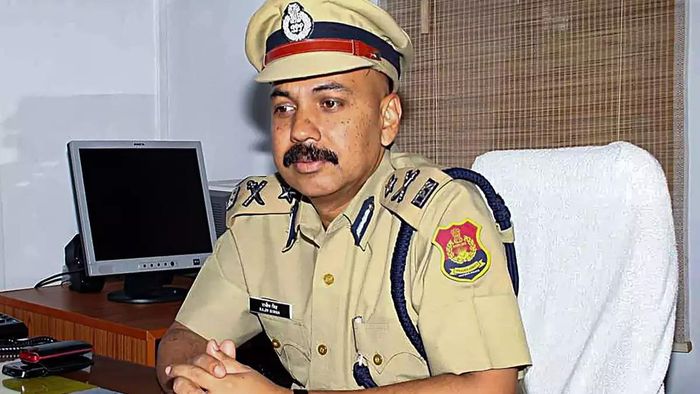Manipur police, state government very serious in tackling drug menace, says DGP Rajiv Singh
Manipur Police DGP Rajiv Singh has said the state government and police are extremely serious about tackling the drug menace and several initiatives have been taken to tighten security along the Indo-Myanmar border

- Oct 21, 2023,
- Updated Oct 21, 2023, 7:49 PM IST
Manipur Police DGP Rajiv Singh has said the state government and police are extremely serious about tackling the drug menace and several initiatives have been taken to tighten security along the Indo-Myanmar border from where drugs are entering the state.
Talking to reporters here on Thursday, Singh said the menace is not only affecting Manipur but all the Northeastern states.
"We are very concerned about the drug menace. It is not only hampering Manipur, but the entire Northeast. Both the Centre and the state are very serious in tackling the problem," he said.
Less than 10 per cent of Manipur's 398-km international border with Myanmar is fenced which leaves the region open for cross-border illegal activities.
Singh was appointed as the DGP in June, almost a month after the ethnic violence started in the state on May 3. He replaced P Doungel, who is now the officer on special duty (OSD) in the home department.
Also Read: Manipur: Tangkhul Naga Long slams Biren Singh's public speech in Ukhrul district
Singh said, "Several initiatives have been taken up to strengthen vigil along the Indo-Myanmar border. In all, 34 police outposts have been sanctioned. A fortnight ago, Chief Minister N Biren Singh, chief secretary Vineet Joshi and I had a meeting to discuss border fencing. As of now, 10km of the border has been fenced."
The DGP thanked people for cooperating with security forces to restore peace in the violence-hit state.
"We know the problem cannot be solved by police. Society has to play a major role in restoring peace. We hope that both the communities will come forward and sort out the differences," Singh said. We are trying to modernise the police force. You have seen that complex cases are generally handed over to the CBI or those related to national security are probed by the NIA. We want Manipur Police to be self-sufficient and investigate such cases," Singh said.
The DGP appealed to people not to be misled by armed miscreants and anti-socials who are trying to destabilise the situation.
"There has been a decline in the number of casualties. Our first priority was to reduce violence-related deaths, which we have been able to do. The level of violence has also come down.Security has been provided for farming activities and firings in the fringe areas have come down," he said.